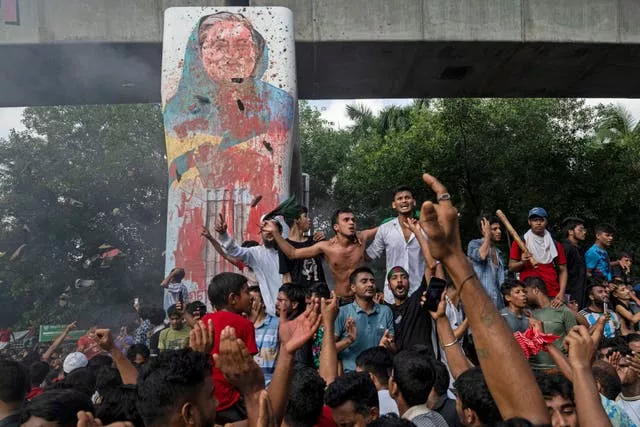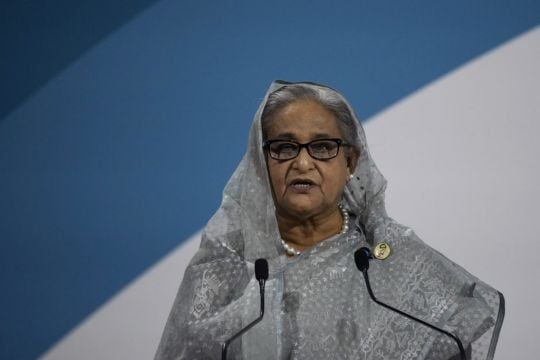Former prime minister Sheikh Hasina has issued a call from self-exile in India for an investigation into those responsible for killings of students and others during weeks of violent protests in Bangladesh that prompted her ouster.
Ms Hasina, who stepped down and fled Bangladesh on August 5 after student activists led an uprising against her government, is herself accused of responsibility for much of the deadly violence, along with top officials of her administration.
In a statement posted on the social media platform X, formerly Twitter, by her son Sajeeb Wazed Joy, Ms Hasina said: “I demand punishment for those responsible for the killings and sabotage, through investigation.”

It was her first public statement since leaving the country.
More than 300 people were killed in unrest that started in July with protests against a quota system for government jobs that later morphed into a movement against Ms Hasina’s administration.
Earlier on Tuesday, police launched a murder investigation in what was expected to be the first of several cases accusing Ms Hasina and other government officials of responsibility for deaths during the unrest.
The case launched on Tuesday involved the killing of a grocery shop owner in July.
SM Amir Hamza, described as a “well-wisher” of grocery store owner Abu Sayeed, filed the case at the court of Dhaka Metropolitan Magistrate Rajesh Chowdhury.
Mr Hamza said Sayeed was killed on July 19 amid clashes during the student-led uprising, and that he filed the case because Ms Sayeed’s family did not have the capacity to seek justice.

Ms Hasina was named as a suspect in the petition along six other people including former home minister Asaduzzaman Khan, general secretary of then ruling Awami League party Obaidul Quader, and top police officials.
The Dhaka court asked the Mohammadpur Police Station to register the case. Police will now investigate the case and file a report to the court.
The uprising forced Ms Hasina to leave office and flee to India, ending a 15-year rule that turned increasingly autocratic, her critics say.
An interim government is now running the country.
On Thursday, Muhammad Yunus, a Nobel peace laureate, was sworn in as interim leader.
The chaos on Bangladesh’s streets continued after Ms Hasina’s resignation.
Dozens of police officers were killed, prompting police to stop working across the country. Police officers have gradually returned to work.







